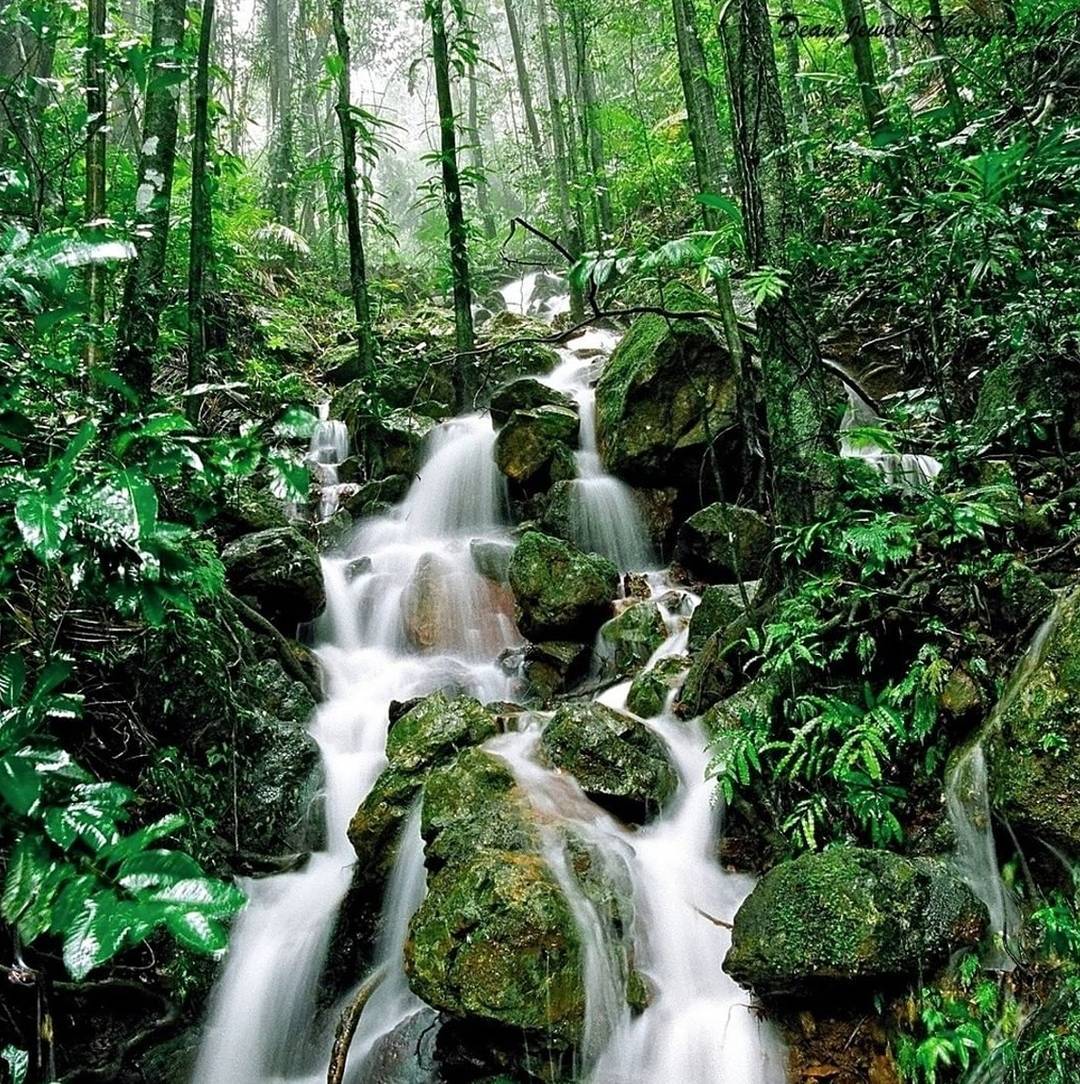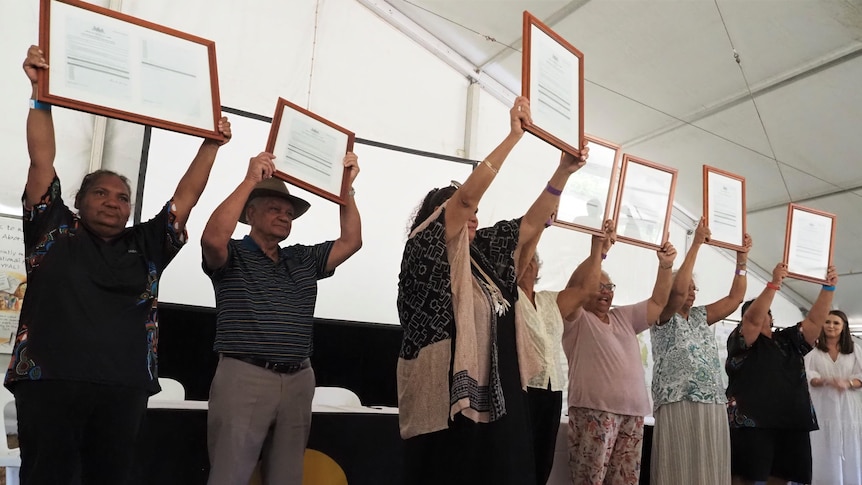WORLD’S OLDEST TROPICAL RAINFOREST HANDED BACK TO ABORIGINAL OWNERS
DAINTREE RAINFOREST RETURNED TO ITS TRADITIONAL CUSTODIANS IN A HISTORIC AGREEMENT
The world's oldest surviving tropical rainforest, the World Heritage-listed Daintree, was formally returned to its Traditional Owners last month. In a formal ceremony on Wednesday September 29, deeds for 160,213 hectares (618.6 sq miles) of country in Far North Queensland were handed to Eastern Kuku Yalanji elders for land that reaches from Mossman to Cooktown, including the entirety of Daintree National Park. The campaign for traditional ownership and management of the Unesco World Heritage-listed Daintree National Park has been a four-year struggle for negotiators. Conservationists have welcomed the decision.
HISTORIC MOMENT AS DAINTREE NATIONAL PARK RETURNED TO EASTERN KUKU YALANJI PEOPLE
The world's oldest living rainforest has been returned to its custodians in a historic handback ceremony in Far North Queensland.
The Eastern Kuku Yalanji people have taken formal ownership of 160,213 hectares of country stretching from Mossman to Cooktown, including the UNESCO World Heritage-listed Daintree National Park.
"This is where we belong on country, on bubu — on land," Yalanji traditional owner and Jabalbina Yalanji Aboriginal Corporation director Mary-Anne Port told ABC. "All our ancestors called us back to home.’
"I broke down — to get it all back in a battle that we've lost so many, young and old, that fought for country and now it's all back."
THE FIRST PLACE IN AUSTRALIA WHERE TRADITIONAL OWNERS TAKE ON OWNERSHIP A UNESCO WORLD HERITAGE AREA
The Daintree, along with Ngalba-bulal, Kalkajaka and the Hope Islands National Parks (Cape York Peninsula Aboriginal Land) will now be jointly managed by the Eastern Kuku Yalanji people and Queensland Government. Native title had already been established over the majority of the land, but the Traditional Custodians will now have a greater involvement in its management.
"The Eastern Kuku Yalanji people’s culture is one of the world’s oldest living cultures and this agreement recognises their right to own and manage their Country, to protect their culture and to share it with visitors as they become leaders in the tourism industry,” Environment Minister Meaghan Scanlon said in a statement.
The 180 million-year old Daintree Rainforest is world-famous for its ancient ecosystem and lush, natural beauty which includes rainforest, rivers, waterfalls, gorges and beaches, was added to the UNESCO World Heritage List in 1988. UNESCO recognises it as an "extremely important" site of rich and unique biodiversity, with over 3,000 plant species, 107 mammals, 368 bird and 113 reptile species. David Attenborough even described it as "the most extraordinary place on earth".
Minister for Aboriginal and Torres Strait Islander Partnerships Craig Crawford, who is spending two days in Wujal Wujal, said the land hand-back is the first place in Queensland and Australia where Traditional Owners will simultaneously take on ownership and have a significant role in joint management of a UNESCO World Heritage Area.
IMPORTANT MILESTONE IN QUEENSLAND'S HISTORY
Under the Indigenous Management Agreement, the Eastern Kuku Yalanji People will jointly manage the four national parks with the Queensland government.
"Today is not the end — it's the beginning of the next step of the process," Kuku Nyungkul traditional owner Desmond Tayley said.
"This was the second part of the native title claim [of 2007]."
Mr Tayley said the managers would work in partnership with governments and stakeholders to make sure they received the full benefit of what they signed and ensure that promised jobs and funding would come through.
State Environment Minister Meaghan Scanlon said the agreement was a "really important milestone in Queensland's history" that "really rights the wrongs of the past".
"There's a number of agreements put in place … to make sure that we'll continue to work in good faith with traditional owners to make sure we are working in genuine partnership," she said.
Mr Tayley said the restoration was a crucial part of the healing process.
"It's important that we get that back on country and we make sure that our spirit is kept very strong," he said.

